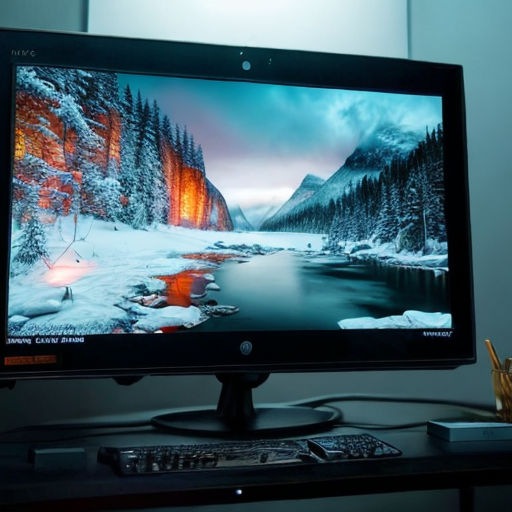Mastering the Art of Computer Programming: A Beginner’s Guide
Getting Started: Understanding the Basics of Computer Programming
Alright, folks, let’s dive into the wild world of computer programming! If you’re a newbie, fear not, for I shall be your guide through this maze of code. Learning computer programming is like learning a new language, but instead of asking for directions to the nearest bathroom, you’ll be asking your computer to do your bidding. It’s all about understanding the basics, my friends. Start by wrapping your head around concepts like variables, loops, and conditionals. Think of them as the building blocks of your coding empire. And remember, just like in life, practice makes perfect. So, roll up your sleeves, grab a cup of coffee (or five), and get ready to embark on this exciting journey of becoming a programming wizard!
Building a Strong Foundation: Essential Concepts and Terminology in Programming
An interesting fact about learning computer programming is that it is not necessary to have a background in mathematics or science to excel in programming. While logical thinking and problem-solving skills are beneficial, programming is a creative and versatile field that welcomes individuals from diverse educational backgrounds. With dedication, practice, and a passion for learning, anyone can become proficient in programming, regardless of their academic background.
Alright, my fellow aspiring programmers, let’s talk about building a strong foundation in the world of coding! Just like constructing a sturdy house, learning programming requires a solid understanding of essential concepts and terminology. Think of variables as the building blocks that hold information, and data types as the different materials you can use. Functions are like the tools in your toolbox, allowing you to perform specific tasks. And let’s not forget about loops and conditionals, the architects of control flow. It may seem overwhelming at first, but fear not! With patience, practice, and a sprinkle of humor, you’ll soon be speaking the language of computers fluently. So, grab your coding cape, put on your thinking cap, and let’s lay the groundwork for your programming success!
Mastering the Tools: Exploring Programming Languages and Development Environments

Alright, my fellow coding enthusiasts, let’s talk about mastering the tools of the trade! When it comes to learning computer programming, exploring different programming languages and development environments is like having a vast array of superpowers at your disposal. Each language has its own strengths and weaknesses, just like superheroes with their unique abilities. Whether you choose the versatility of Python, the speed of C++, or the web development prowess of JavaScript, the key is to pick a language that aligns with your goals and interests.
Now, let’s talk about development environments, or IDEs (Integrated Development Environments) for short. These nifty tools are like your trusty sidekicks, providing you with a comfortable workspace to write, test, and debug your code. From the sleek and user-friendly Visual Studio Code to the powerful and feature-rich IntelliJ IDEA, there’s an IDE out there for every coding superhero. Experiment with different environments, find one that suits your style, and watch your productivity soar.
But remember, my friends, mastering the tools is not just about knowing which language or IDE to use. It’s about understanding the underlying principles and concepts that drive them. Take the time to delve into the documentation, explore online resources, and join coding communities. Surround yourself with fellow programmers who can offer guidance and support. Embrace the challenges, celebrate the victories, and never stop learning.
So, my coding comrades, grab your capes, put on your coding gloves, and let’s embark on this thrilling adventure of mastering the tools. With dedication, perseverance, and a dash of humor, you’ll soon be wielding the power of programming languages and development environments like a true coding superhero. Get ready to save the day, one line of code at a time!
Becoming a Problem-Solving Pro: Strategies and Techniques for Effective Programming
A fun fact about learning computer programming is that you don’t need to be a math genius to excel in it! While programming involves logical thinking and problem-solving, it doesn’t heavily rely on advanced mathematics. So, even if you’re not a math whiz, you can still become a fantastic programmer and create amazing software!
Alright, my fellow problem-solving pros, let’s talk about the art of effective programming! Learning computer programming is not just about memorizing syntax and writing lines of code. It’s about developing a problem-solving mindset, a superpower that will serve you well in the world of coding. When faced with a programming challenge, take a step back, analyze the problem, and break it down into smaller, manageable tasks. Embrace the power of pseudocode, a language that allows you to outline your solution without worrying about syntax. And don’t forget the importance of testing and debugging, for even the mightiest of programmers make mistakes. So, my friends, sharpen your analytical skills, embrace the power of logical thinking, and get ready to conquer any coding conundrum that comes your way!
Corey is a charismatic man with an infectious sense of humor, making him a popular figure in the blogging community. With a passion for coding, he effortlessly combines his technical expertise with his witty writing style, captivating readers from all walks of life. Corey's blog is a treasure trove of coding tips, tricks, and tutorials, sprinkled with his trademark humor that keeps his audience engaged and entertained. Whether he's unraveling complex algorithms or sharing hilarious anecdotes from his coding adventures, Corey's unique blend of wit and expertise makes him a must-follow blogger for anyone interested in the world of coding.








